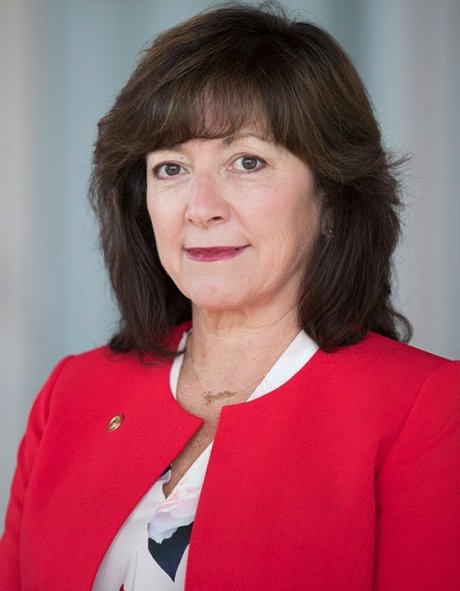Everyone Has a Role to Play in a Global Pandemic
- News & Events
- News
- Everyone Has a Role to Play in a Global Pandemic

"There is a lack of knowledge among the general public about public health and how viruses spread," says nursing professor.
"A pandemic like COVID-19 has been on the horizon for a very long time," said Lynn Blanchette, Rhode Island College associate dean and associate professor of the School of Nursing.
For the past 20 years, Blanchette and other public health faculty have taken nursing students to the R.I. Department of Health to participate in information sessions on how novel viruses like COVID-19, SARS, MERS, H1N1 and even the annual influenza virus is transmitted.
"Our students learn about the necessity to prepare for viruses, to monitor viral strains, to interpret the data, to learn about the mode of transmission of diseases, to hopefully be ready and expect that novel viruses are going to appear," she said.
"In actuality, pandemics like SARS, MERS and Ebola were our preparation and should have gotten us ready," said Blanchette.
But they didn't. Why?
"We don't have the infrastructure built into the federal government to be able to respond quickly to a pandemic," she replied. "Our government relies on private industry to develop testing, vaccinations and immunizations rather than focusing and funding those things through federal agencies. This is a great example of how critical a national health-care system would have been."
Blanchette also said there is a lack of knowledge among the general public about public health and how viruses spread. Historically, many viruses were transmitted through lack of sanitation or passed from animal to human.
"People don't realize that the health of entire communities – locally, nationally, globally – comes from things like having access to clean drinking water and healthy foods that have been inspected," she said. "The majority of our health comes from basic things like this and not from the fact that we have modern hospitals and state-of-the-art medical technology."
So, when the public is told to wash their hands often; avoid touching their eyes, nose and mouth; clean and disinfect surfaces; not to gather in large groups; and to stay at home if they're sick, they're playing a major role in combating the spread of disease.
"Yet the general public isn't attuned to think of themselves as vulnerable to a pandemic like this," she said. "They think it's other people who are going to get sick. It's other people who are going to die. I have a clean house, clean water, fresh food. This isn't about me. It's about someone else. But we all have a role to play, regardless of our health history. Our behavior impacts the outcome of this disease for the entire community."
Along with teaching and her administrative duties as dean, Lynn Blanchette volunteers at the R.I. Department of Health and brings nursing colleagues and students to help staff the COVID-19 hotline on weekends.
